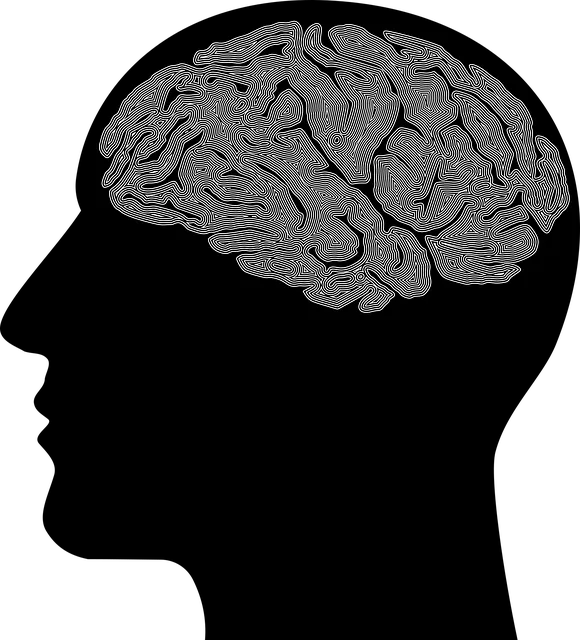Mental health conditions can significantly hinder social interactions, leading to isolation and loneliness in Greenwood Village residents. Kaiser's inpatient mental health programs at Greenwood Village address this through specialized training, therapeutic interventions, and skills development for effective social situations. Social Skills Training (SST) is a key component, focusing on emotional intelligence, communication, and crisis intervention strategies. Tailored SST programs include self-awareness exercises, confidence boosting activities, stress management workshops, and assertiveness practices, empowering patients to build healthier relationships and successfully reintegrate into their communities. Kaiser's holistic approach combines evidence-based practices with technology-driven solutions for increased accessibility.
Social skills training is a powerful tool for individuals with mental health conditions, offering a path to navigate and enhance their social interactions. This comprehensive guide explores how such training can transform lives, especially within the context of inpatient care at Kaiser in Greenwood Village. We delve into the impact of mental health on social relationships, the specific benefits of training programs, and real-world implementations, while also considering future directions for improving patient outcomes.
Understanding these key aspects reveals why Social Skills Training is a vital resource for those navigating mental health challenges in inpatient settings.
- Understanding the Impact of Mental Health Conditions on Social Interactions
- The Role of Social Skills Training in Inpatient Mental Health Care
- Key Components of Effective Social Skills Programs
- Integrating Social Skills Training at Kaiser in Greenwood Village
- Benefits and Challenges: Real-World Applications and Future Directions
Understanding the Impact of Mental Health Conditions on Social Interactions

Mental health conditions can significantly impact an individual’s ability to engage in social interactions, often leading to feelings of isolation and loneliness. Conditions such as depression, anxiety disorders, and schizophrenia can alter a person’s emotional intelligence (EI), making it challenging to interpret and respond appropriately to social cues. Greenwood Village residents with mental health issues might find themselves struggling to initiate conversations or maintain relationships, which is why specialized training is crucial.
At Kaiser in Greenwood Village, inpatient mental health programs recognize the importance of social skills development as a vital component of recovery. Through various therapeutic interventions, individuals learn coping skills that enable them to navigate social situations more effectively. Mental health awareness and understanding one’s own emotional state are key aspects of these programs, empowering patients to build healthier relationships and reintegrate into their communities.
The Role of Social Skills Training in Inpatient Mental Health Care

Social Skills Training plays a pivotal role in inpatient mental health care, particularly at facilities like Kaiser in Greenwood Village. This evidence-based approach is designed to empower individuals struggling with various mental health conditions by equipping them with essential interpersonal skills. Through structured programs, patients learn effective communication techniques, emotional regulation strategies, and appropriate social behaviors, fostering a sense of belonging and enhancing their overall emotional well-being.
In the context of inpatient care, these training sessions often incorporate crisis intervention guidance, teaching individuals to manage high-stress situations and prevent potential escalations. Furthermore, by promoting emotional intelligence, patients develop a deeper understanding of their own emotions and those of others, which is crucial for building supportive relationships and maintaining stability. Kaiser’s inpatient mental health program in Greenwood Village recognizes the value of these techniques in facilitating recovery and preparing individuals to navigate social environments with greater confidence and resilience.
Key Components of Effective Social Skills Programs

Social Skills Training is a crucial component of holistic mental health care, and programs designed to enhance these skills must be tailored to meet individual needs. Effective social skills interventions for mental health conditions in places like Greenwood Village, where Kaiser offers inpatient services, typically include several key components.
First, Self-Awareness Exercises empower individuals to recognize their emotions, thoughts, and behaviors, fostering a deeper understanding of themselves and how they interact with others. Confidence Boosting activities and Stress Management Workshops are also integral parts of these programs. By learning effective coping strategies and practicing assertiveness, participants gain the tools to navigate social situations more confidently. Organization and structure play a vital role in ensuring these skills are internalized and generalized to real-life contexts.
Integrating Social Skills Training at Kaiser in Greenwood Village

In the heart of Greenwood Village, Kaiser offers a unique and comprehensive approach to mental health care with its integrated Social Skills Training program. This initiative aims to empower individuals navigating inpatient mental health stays by equipping them with essential social interaction techniques. Through engaging workshops and supportive group settings, patients learn effective communication strategies, emotional regulation skills, and ways to build and maintain healthy relationships—all vital aspects of the emotional healing processes.
Kaiser’s dedicated team organises regular stress management workshops and mental wellness coaching programs tailored to meet diverse needs. These sessions foster a safe environment for participants to practice new social skills in real-time scenarios, enhancing their confidence as they prepare for reintegration into the community. By combining evidence-based practices with a holistic approach, Kaiser ensures that patients not only find relief from their symptoms but also acquire tools to thrive and maintain mental wellness in their daily lives.
Benefits and Challenges: Real-World Applications and Future Directions

Social skills training (SST) offers significant benefits for individuals with mental health conditions, fostering better communication and relationship building, two key aspects of mental wellness. By learning effective social interaction techniques, participants can enhance their support networks, reduce feelings of isolation, and improve overall quality of life. SST has proven to be particularly beneficial in various real-world applications, such as community settings, schools, and workplaces, empowering individuals to navigate social situations with greater confidence.
Despite its advantages, SST faces challenges, especially when considering complex mental health conditions. Greenwood Village’s Kaiser inpatient mental health programs, for instance, must adapt these training methods to cater to diverse patient needs. Future directions in SST research include exploring technology-driven solutions, like online platforms and mental wellness podcast series production, to increase accessibility and engagement. Building resilience through social skills training remains a promising approach, integrating it with contemporary delivery methods to better serve individuals navigating mental health journeys.
Social skills training plays a pivotal role in enhancing the lives of individuals with mental health conditions, particularly those received at inpatient facilities like Kaiser in Greenwood Village. By integrating key components such as communication strategies, emotional regulation, and social problem-solving into their care, mental health professionals can empower patients to navigate social interactions more effectively. As demonstrated by real-world applications at Kaiser, these programs not only improve patient outcomes but also foster a sense of community and belonging, ultimately contributing to the holistic healing process. Moving forward, continued research and refinement will ensure that social skills training remains a vital component of mental health care in Greenwood Village and beyond.






